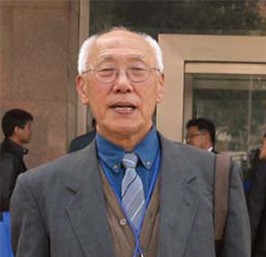
As Dr. Kyu-taik Sung walked down South University Avenue, a U-M stu- dent stopped to exchange a few words and bowed before leaving. Dr. Sung, a visiting professor at U-M SSW, has recruited a number of South Korean students to the School and provides advice as they adjust to learning in a different cultural context.
MSW student Wonhyung Lee from South Korea says that she accepted Dr. Sung’s invitation to come to him for advice. “I could tell he was a caring person and he was helping us adjust to a new environment, be good students in this school, and prepare for the next step.”
Sung knows what it is like to be an international student; he first came to the United States in 1968, though it was not his first encounter with American culture. During the Korean War, he was assigned to a U.S. Army outfit for three years.
“Even in South Korea four decades ago,” says Sung, “we knew that the U-M was a highly reputable institution and that the School of Social Work faculty played a leading role in American social work education and published a large number of books and articles. I wanted to study at that school.”
At U-M SSW Sung met students from Columbia, Ethiopia, Norway, Switzerland, Hong Kong, Thailand, and India. A few professors helped them organize an international student group and invited them to their homes. “We all had great times learning about other cultures and societies while lightening our homesickness and loneliness,” recalls Sung. The late Professor Henry J. Meyer, chair of Sung’s doctoral dissertation committee, advised Sung to obtain experience in running a school of social work. He helped Sung obtain a faculty appointment at the University of Wisconsin–Madison School of Social Work, where Sung stayed for two-and-a-half years.
In 1980 Sung began teaching at Yonsei University, the largest private university in South Korea. He became the first chair of the Department of Social Work, which expanded to establish the first graduate school of social work in the country.
After fifteen years at Yonsei University, Sung retired from teaching to focus on research. He became the first Frances Wu Chair Professor at the University of Southern California, Los Angeles, where he conducted cross-cultural studies of family support for the aged in the East and the West and developed international exchange activities.
Sung has written extensively on East Asian culture and aging, as well as social welfare administration, publishing 180 papers (60 in American journals) and 20 books.
He currently studies elder respect and support. In the foreword to his book Respect and Care for the Elderly: The East Asian Way (University Press of America, 2007), Professor Ruth Dunkle writes, “No scholar is in a better position to discuss the issues of filial piety [East Asian way of eldercare] than Dr. Sung.”
“Today, South Korea is facing a critical problem of rapid aging,” explains Sung. “The traditional values of family support are weakening as families are becoming smaller, more women work outside of the home, and an increasing number of grown children live separately from their aged relatives.”
Sung has received several awards for his research and publications addressing modern ways of filial piety. He served as president of the Korean Geronotological Society and Korean Academy of Social Welfare, and he directs Elder Respect, Inc., a nonprofit organization that promotes respect for the elderly.
Since 2004 Sung has served on the School’s international committee. He played a major role in initiating the exchange relationship between U-M SSW and Yonsei University. During Dean Paula AllenMeares’ June 2007 visit to Asia, he arranged for her to meet Yonsei University’s president, as well as the dean and faculty of its Graduate School of Social Welfare.
Dean Allen-Meares says, “Dr. Sung has been instrumental in helping to guide the globalization of our School. He has been an invaluable resource and a great colleague!”
—Tanya C. Hart Emley is editor of Ongoing.